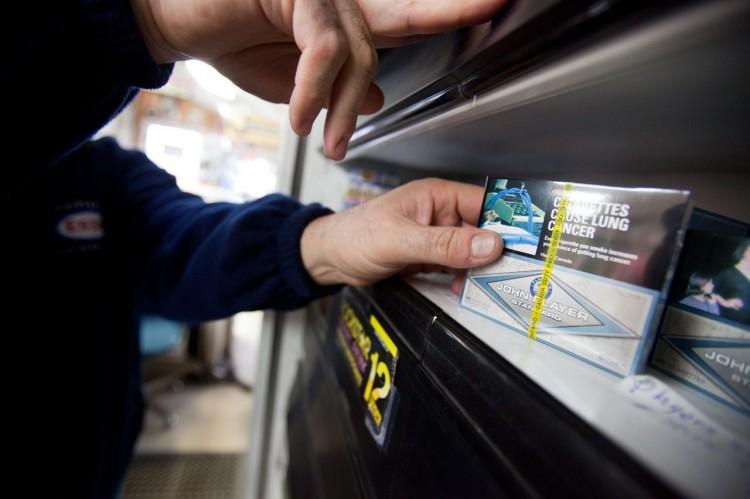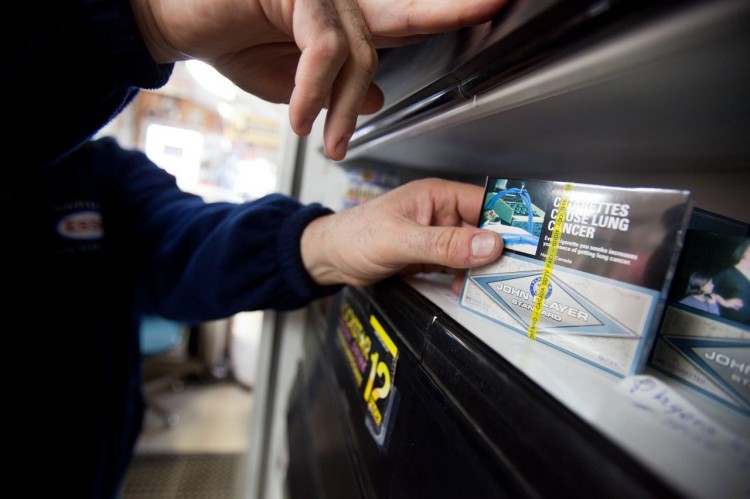Canada’s illicit tobacco market can be shrunk by investing more in the legal or enforcement pressures on suppliers which would result in raising the price of contraband cigarettes, says a study by the C. D. Howe Institute.
Authored by Concordia University economists Ian Irvine and William Sims for the think-tank, the study examines government efforts and tax policy on tobacco use and the effects on the choice between legal and illegal cigarettes.
Titled “A Taxing Dilemma: Assessing the Impact of Tax and Price Changes on the Tobacco Market,” the study considers different policy scenarios to shut out the illegal market, including reducing taxes on cigarettes and boosting the price of the illegal product through more crackdown.
The authors conclude that reducing taxes on cigarettes would not have a significant impact on curbing the illegal market. It would also result in a small increase in total tobacco consumption.
For lower prices on the legal product to be effective in reducing demand for the illegal market, tax reductions would have to be substantial, the authors argue. However, that would result in significantly lower tax revenues as well as increased overall consumption.
Raising legal and enforcement pressure on suppliers would drive up the cost of contraband cigarettes and thus lower demand for the illegal market.
“[T]he illegal market is destined to remain operative unless more intensified legal measures are enacted,” the report says.
The authors note that sales of contraband cigarettes in Canada constitute a sizable component of the tobacco market. The illegal trade is associated with a loss in tax revenue and an array of illicit activities that involve gangs and organized crime.
Policy Needs ‘Appropriate Balance’
The report says the steep tobacco tax increases in the early 2000s resulted in a growth in the illegal supply, which by 2008 accounted for one-third of the national market.
Increased policing and controls, however, lowered the market share of the illegal product to around 20 percent in 2010.
The report notes that it would be impractical and of limited value for provincial and federal authorities to act against illegal production on First Nation lands, citing the 1990 Oka Crisis that put the Mohawks and Quebec authorities in a violent confrontation.
The authors say that tax policy decisions should strike an appropriate balance of taxes, restrictions, and controls on the illegal market.
“We emphasize that tax policy should be based not only on its impact on the total quantity of cigarettes purchased, but also on the social, legal, and enforcement costs associated with the illegal supply,” the report says.
The Epoch Times publishes in 35 countries and in 19 languages. Subscribe to our e-newsletter.






